Newspoll: Daniel Andrews faces battle to hold on to majority power in Victoria
Newspoll shows satisfaction with Victorian Premier Daniel Andrews has slumped, and Labor’s primary vote has fallen to the same level as the Coalition’s.
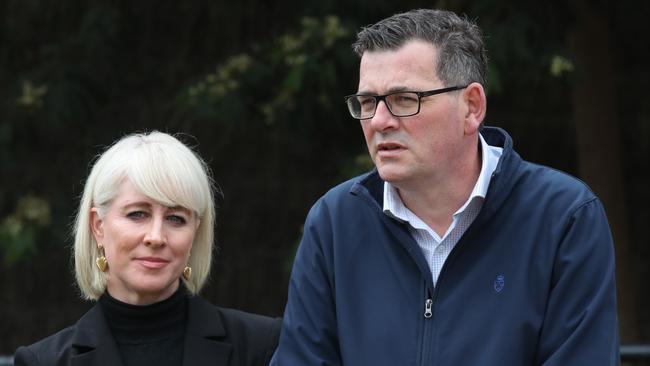
Daniel Andrews faces a fight to hold majority government after a drop in support for Victorian Labor three weeks from the state election has put up to 10 government seats at risk.
A Newspoll, conducted exclusively for The Weekend Australian, found primary support for Labor and the Liberals level at 37 per cent, as more than a quarter of voters consider backing minor parties or independents.
Labor’s primary vote has dropped four points since the previous poll in August, while the Coalition has gained one point.
Labor remains on track to retain power with a 54-46 two-party-preferred lead over the Coalition, but a 2.3-point rise in support for the Greens to 13 per cent since the last election and a 1.8-point rise in support for others, also to 13 per cent, threaten to tighten the race in key seats.
Based on the Newspoll figures the government, which won 57.3 per cent of the two-party-preferred vote in 2018, would suffer a 3.3 per cent swing against it if the result were replicated on polling day. This would put up to 10 seats at risk, with the government notionally holding a 12-seat majority based on new boundaries after a redistribution.
The Greens, which hold three inner-Melbourne seats, are hopeful of picking up Richmond, Albert Park, and possibly Northcote. Climate 200-funded independents are targeting Labor-held Hawthorn and Caulfield in Melbourne’s inner east and southeast, while more grassroots independents are seeking to capitalise on the perception that Labor has neglected traditionally safe seats in Melbourne’s west such as Melton, Point Cook and Werribee.
Mr Andrews maintains a decisive 52-33 lead over Liberal leader Matthew Guy as preferred premier and, despite a four-point drop in his satisfaction rating since August, more than half of voters (51 per cent) remain satisfied with Mr Andrews’ performance.
Over the same period dissatisfaction with Mr Guy has risen three points to 52 per cent while his satisfaction rating remained steady at 32 per cent.
Ahead of the November 26 election, voters remain almost evenly divided over whether Labor deserves to be re-elected (45 per cent) or whether it is time to give someone else a go (47 per cent).
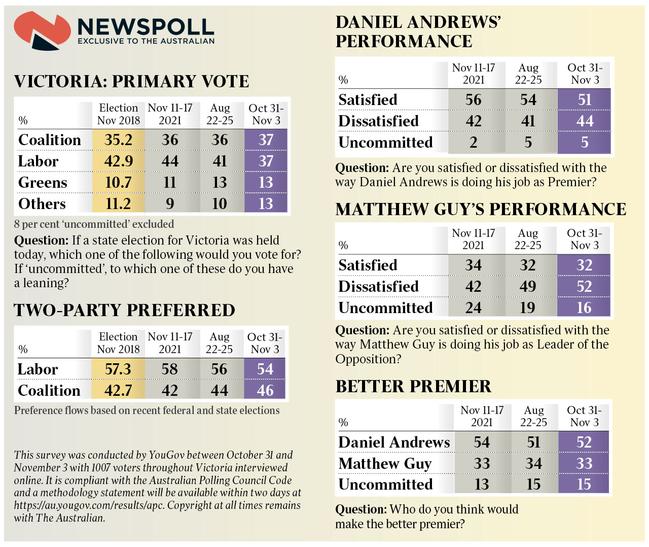
In the first three days of the campaign the Premier has been confronted by questions over the Andrews family’s involvement in a near-fatal 2013 collision with a 15-year-old cyclist and news of an anti-corruption commission probe into grants to the Health Workers Union ahead of the 2018 state election — IBAC’s fourth investigation into matters linked to the Premier.
Mr Guy has faced pressure over costings of the Coalition’s plan to cap daily metropolitan public transport fares.
The poll of 1007 Victorian voters – interviewed online by YouGov – was conducted between Monday and Thursday this week.
As the campaign began Mr Andrews held strong leads over Mr Guy in terms of voter satisfaction despite seeing his popularity decline over the past year.
The poll found satisfaction with Mr Andrews’ performance has fallen five points over the past 12 months while dissatisfaction rose two points to 44 per cent.
Mr Guy’s dissatisfaction rating has soared 10 per cent over the past year to 52 per cent while his satisfaction rating has fallen from 34 per cent last year to remain steady since August at 32 per cent.
While almost a quarter, or 24 per cent, of voters were yet to make up their mind about their satisfaction with Mr Guy in 2021 – just two months after he regained the Liberal leadership from Michael O’Brien – that number has now fallen to 16 per cent.
The latest poll found 45 per cent believed Mr Andrews deserved to be re-elected, which represented a two-point fall compared with 12 months ago. Older voters were less likely to believe Mr Andrews deserved to be re-elected. Only 34 per cent of those aged 65 and over believed the government should be re-elected compared with 57 per cent of 18 to 34-year-olds.
Conversely, 36 per cent of 18 to 34-year-olds believed it was time to give someone else a go, compared with 62 per cent of those aged over 65.


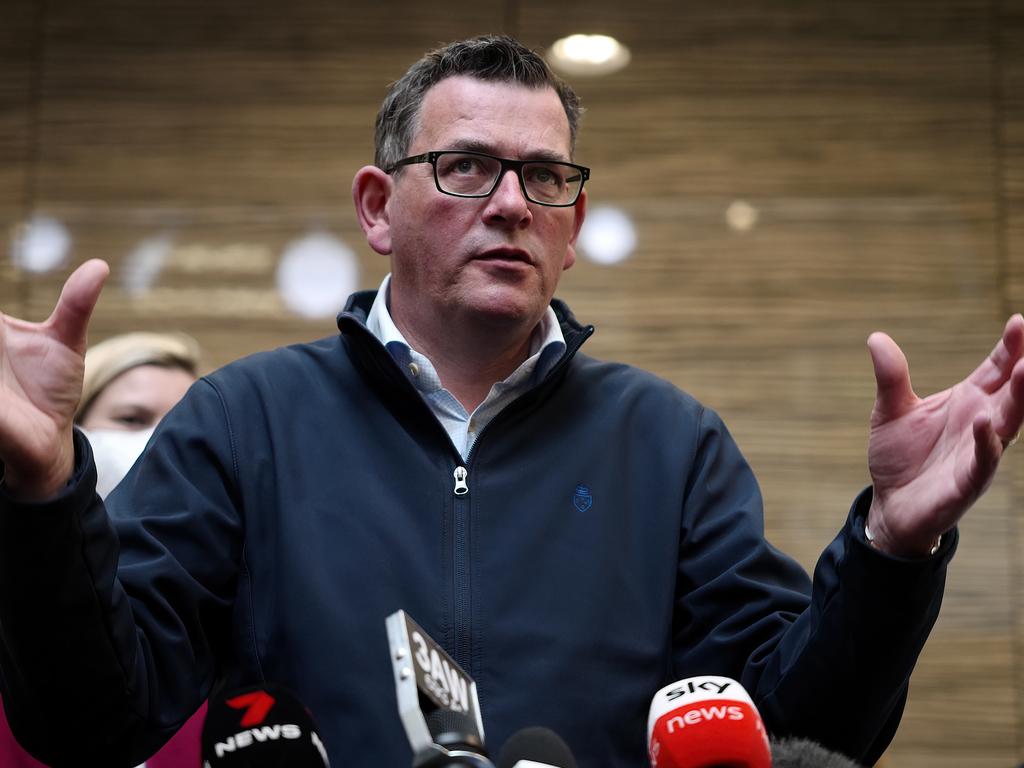

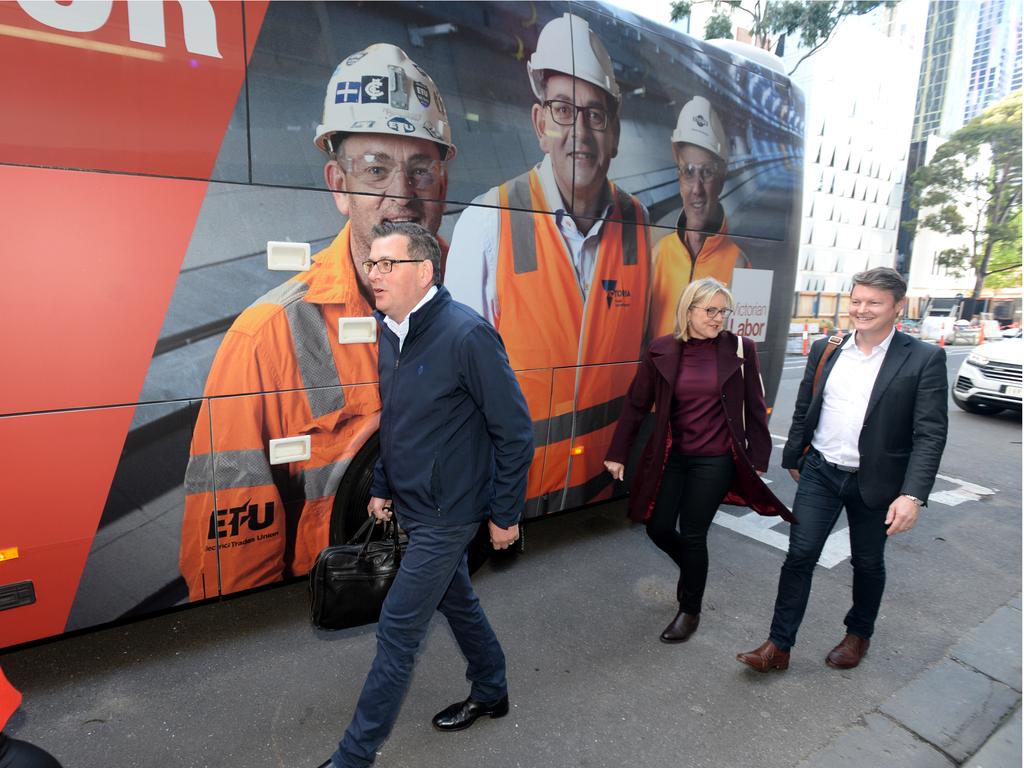
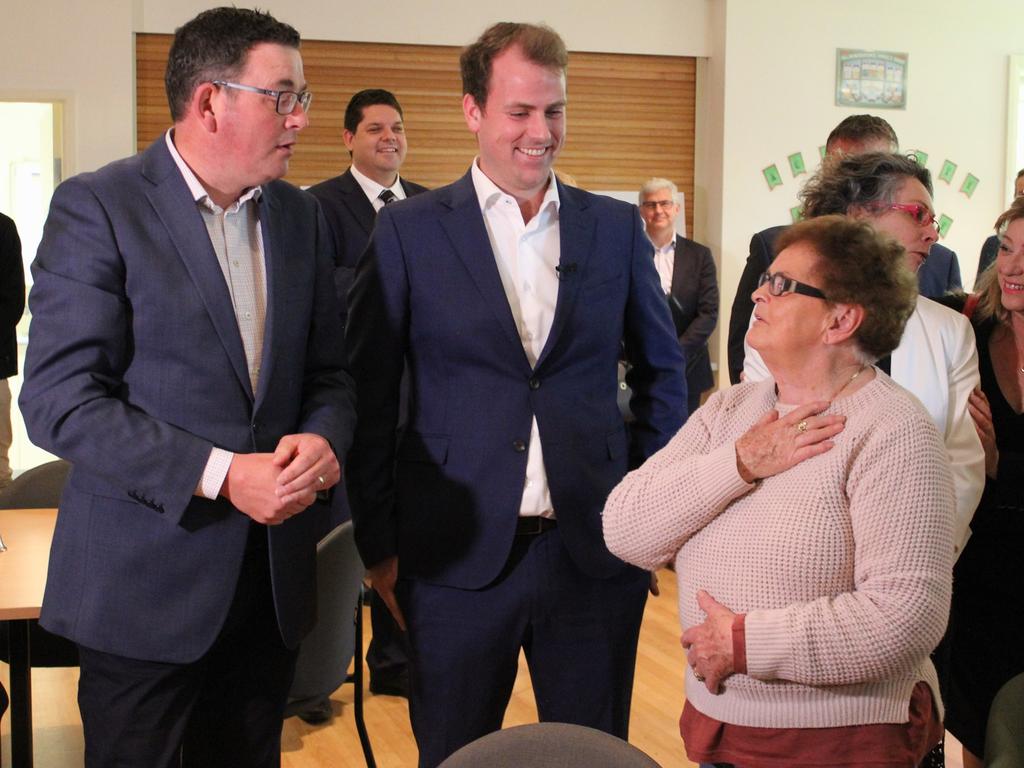


To join the conversation, please log in. Don't have an account? Register
Join the conversation, you are commenting as Logout